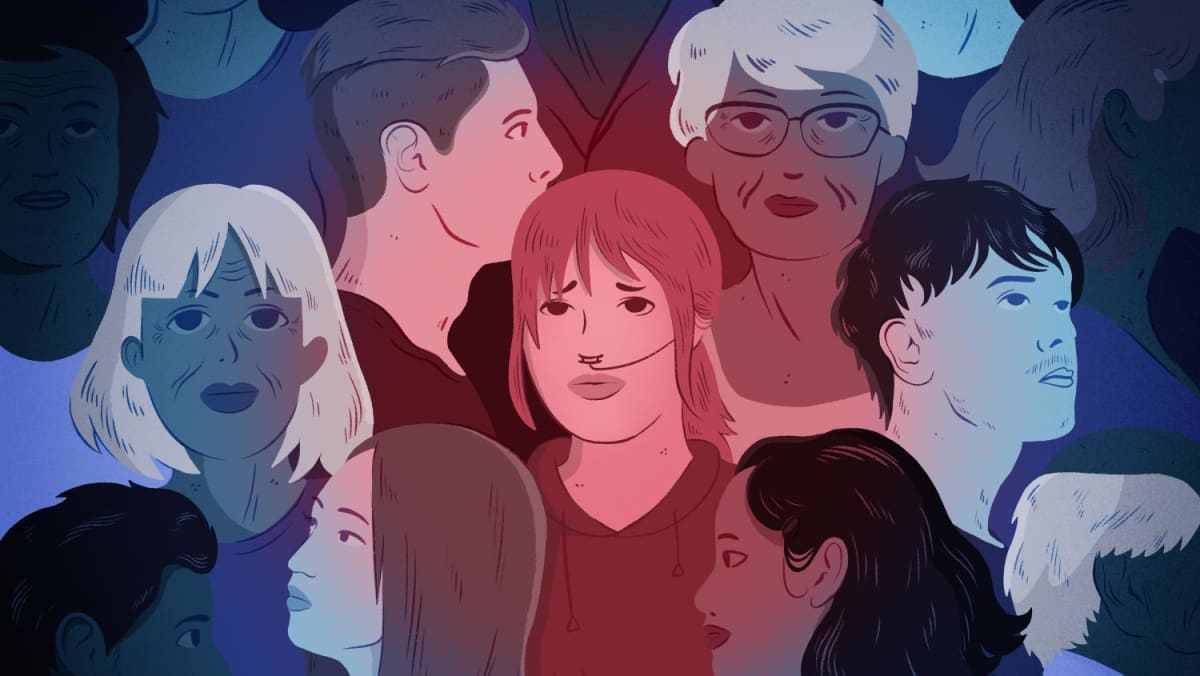
Each week, TODAY’s long-running Big Read series delves into the trends and issues that matter. This week, we speak to young people who have fought cancer on the challenges they face. This is a shortened version of the full feature, which can be found here.
 By
By
Renald Loh
THE BIG PICTURE
For these young cancer patients, having the support of close friends is crucial, but this is not always possible.
The need to undergo urgent, intensive treatments means that their daily routines are disrupted, with much of their time spent physically recuperating from surgery, radiotherapy or chemotherapy.
Ms Jamie Ng Jin, a 25-year-old fashion designer who was diagnosed with Stage 2 breast cancer last year, said that this affected the type of conversations she could have with her friends.
“Whenever you update them, it’s about your treatment that they can’t relate to. At that point, you will feel a bit lonely,” she said, adding that they no longer had as many common topics to speak about together.
Thus, many turn to the Internet to find not just medical information, but also comfort and reassurance in the form of a community that could understand them.
Similarly, when Ms Jill Alphonso, 44, was first confronted with the possibility of having to undergo a unilateral mastectomy to remove a cancerous tumour in her left breast, she wanted to find out what her body might look like post-operation.
As it turned out, Ms Alphonso said that it was difficult to find such pictures of women with their faces and their mastectomy scars — especially women in Asia.
That was when the former journalist decided to blaze a trail for others by documenting her recovery journey both in words and in pictures.
“I started taking pictures of myself post-op, and I saw something good there. I saw myself in a different light. I saw a person with a mastectomy scar who was still positive.
“It just sparked this thought that, if other women can clearly see that somebody has come through surgery, has survived and can smile and still be happy, complete and whole in their own body and mind… then surely that’s going to help somebody.”
Ultimately, her motivation for publicly documenting her battle against cancer stems from a desire to connect with others who are experiencing similar struggles.
When Ms Arathi Devandran was diagnosed with Stage 2A breast cancer last year at the age of 31, she too sought a community with which she could share her troubles and be understood — as the struggles and priorities between older and younger patients can differ very wildly.
“I tried finding a community,” she said, “but my surgeons told me that there wasn’t anyone because I was too young, and the support groups that they did have were mostly (for) older people,” Ms Devandran said.
When Ms Tracy Hoo introduced herself as a 29-year-old at a support group meeting organised by the Breast Cancer Foundation in 2016, she received looks of shock and surprise from her older peers.
She said she “could not relate at all” to the problems that participants brought up during the meeting, like looking after their grandchildren while seeking treatment.
“It made me even sadder and more depressed because then it made me feel like — ‘why am I the youngest one, why am I having this thing?’”
Today, nearly nine years after her diagnosis, Ms Faridah has found a new mission in life — to build a career around helping others, especially young people.
The now 26-year-old woman is currently a branch manager trainee at a government agency, while studying part-time for a post-graduate diploma in counselling psychology at the College of Allied Educators.
She told TODAY that she was frustrated at the “standard” advice that her counsellors had offered her while she was undergoing cancer treatment — to take walks in the park and to just do her best — and that she felt there was little attempt to understand her struggles.
Now, Ms Faridah wants to be the counsellor to teenagers and young adults, the professional confidant whom she felt she should have had at her lowest point in life.
“You really need support… the right kind of support,” said Ms Faridah, who is currently in remission.
“If not, I don’t think a cancer patient can make it, especially at that age.”